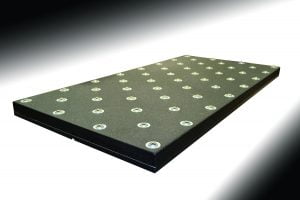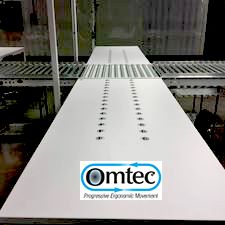Innovative Approaches to Production
- In the dynamic landscape of Future Technologies manufacturing industry, technological advancements are paving the way for unprecedented efficiency, innovation, and growth. From the integration of smart systems to the adoption of artificial intelligence, the sector is witnessing a transformative era. In this article, we explore the new technologies that are reshaping the manufacturing landscape and driving it towards Industry 4.0.
Internet of Things (IoT) of Future Technologies Manufacturing:
The Internet of Things has become a game-changer in manufacturing. IoT enables the interconnectivity of devices, allowing machines to communicate, share data, and optimize processes in real-time. Sensors embedded in machinery collect valuable data, providing insights into performance, maintenance needs, and overall equipment efficiency. This data-driven approach enhances decision-making and minimizes downtime, ultimately boosting productivity.
Artificial Intelligence (AI) and Machine Learning:
AI and machine learning algorithms are being harnessed to analyze vast datasets, predict outcomes, and optimize manufacturing operations. Predictive maintenance, quality control, and demand forecasting are areas where AI is making significant strides. By leveraging machine learning models, manufacturers can identify patterns, reduce defects, and improve overall production efficiency.
Robotics and Automation:
Robotic systems are increasingly taking center stage on manufacturing floors. These robots, equipped with advanced sensors and programming, perform tasks with precision, speed, and consistency. Automation not only streamlines production but also enhances worker safety by handling repetitive or hazardous tasks. Collaborative robots, or cobots, are designed to work alongside human operators, fostering a harmonious man-machine partnership.
3D Printing/Additive Manufacturing:
The advent of 3D printing has revolutionized prototyping and production processes. Additive manufacturing allows for the creation of complex and customized components with reduced waste. This technology is particularly valuable in rapid prototyping, tooling, and creating intricate geometries that traditional manufacturing methods struggle to achieve.
- Augmented Reality (AR) for Training and Maintenance: Augmented reality is finding its way into manufacturing for training and maintenance purposes. AR applications provide workers with real-time information, instructions, and visualizations, enhancing their ability to perform complex tasks. This not only reduces the learning curve for new employees but also facilitates efficient equipment maintenance and troubleshooting.
- Blockchain for Supply Chain Transparency:
Blockchain technology is addressing challenges in the manufacturing supply chain. By providing a decentralized and transparent ledger, blockchain ensures the traceability of raw materials, components, and finished products. This helps in verifying authenticity, preventing counterfeiting, and enhancing overall supply chain visibility. - Conclusion:
As the manufacturing industry undergoes a profound technological transformation, companies that embrace these cutting-edge technologies are poised to thrive in the era of Industry 4.0. From optimizing processes to improving product quality and fostering sustainability, the integration of IoT, AI, robotics, 3D printing, AR, and blockchain is shaping a future where innovation is the key to success. The journey towards a smarter, more connected manufacturing ecosystem is not only revolutionizing how goods are produced but also setting the stage for a new era of possibilities. - Contact US at AT Auto Conveyor



